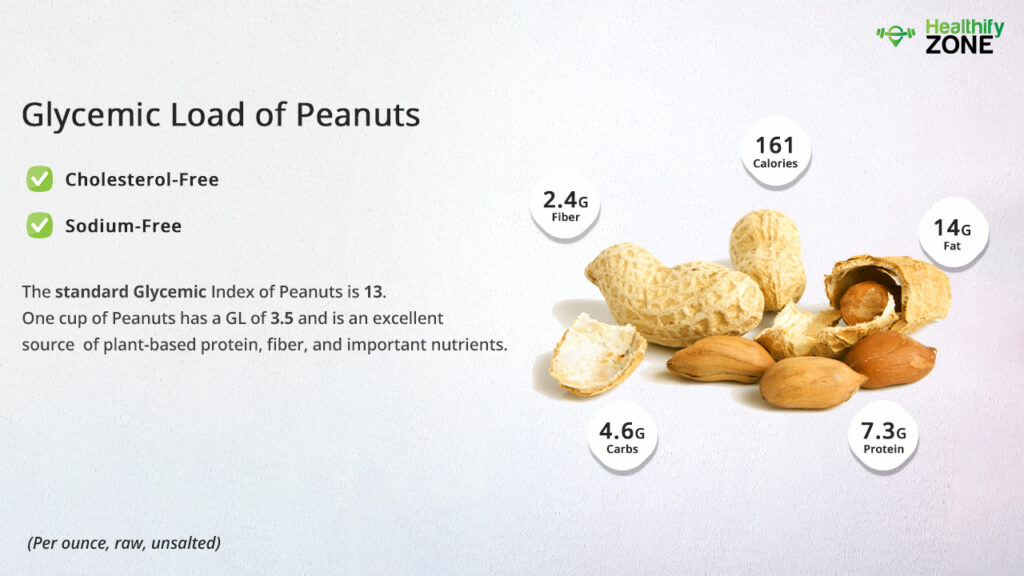Peanuts are one of the foods with the lowest GI ratings. The fact that peanuts have little effect on blood sugar levels makes them a suitable snack for diabetics. Diabetes sufferers must watch their blood sugar levels to make sure they do not rise too quickly or too far. They should be very careful about their nutrition because of this. They might ponder whether or not peanuts are appropriate.
Peanuts are a healthy option because they have a low glycemic index and glycemic load and include vital nutrients. There could be dangers, though.

Is Peanuts Safe for Diabetes?
A study suggests that eating peanuts or peanut butter may reduce the incidence of type 2 diabetes. Unsaturated fat and other nutrients included in peanuts boost your body’s capacity to control insulin.
Although peanuts have several benefits for those with type 2 diabetes, their high-calorie content means that they should only be consumed seldom. Over 400 calories can be found in one-half cup of raw peanuts, as per the USDA nutrition database. Try substituting peanuts for red and processed meats as well as refined grain products to minimize your calorie intake.
Is Peanuts suitable for weight loss?
Peanuts are beneficial to weight loss since they provide necessary elements such as proteins, fiber, and healthy fats. Peanuts function as an energy source and speed up your metabolism. They help you feel fuller for longer periods of time and consume fewer calories since they digest slowly.
What is the Best time to Consume Peanuts?
The morning or daytime are the optimum times to eat peanuts. The perfect late-afternoon snack is peanuts. However, it should be avoided during dinner and before going to bed.
The Bottom Line: The Glycemic Index of Peanuts is 14
Peanuts are among the most popular legumes in the world. They are frequently available on the counter of any bar and are extensively utilized as a nutritious snack or dessert topper.
They are available in a wide range of preparations, including plain, salted, roasted, boiled, and uncooked. You might be curious about whether peanuts can aid in weight loss despite their high protein and fat content.
In numerous ways, peanuts may aid in weight loss. In reality, a number of observational studies have established a link between eating peanuts and maintaining a healthy weight. Additionally, they have been connected to decreased obesity rates.